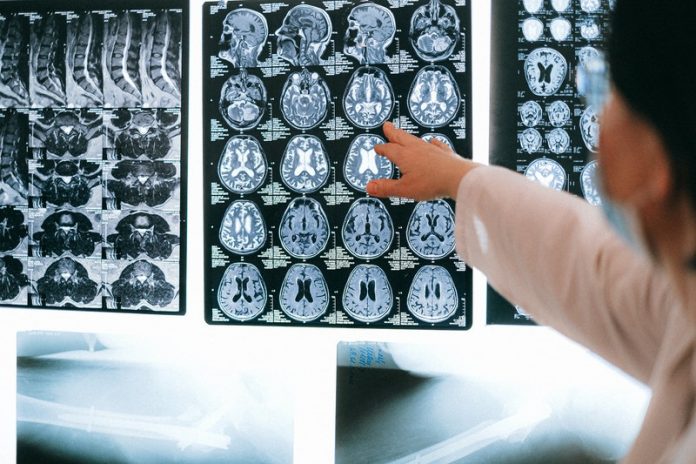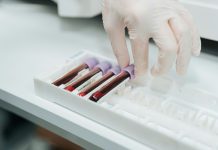
In a new study from the University of Manchester, researchers found a novel clot-busting drug is able to effectively restore blood flow in the brains of mice, opening the door for safer and more effective stroke treatment.
The compound—an enzyme called caADAMTS13—could dissolve clots in patients that are resistant to current treatment.
Stroke is caused by a reduction in blood flow to the brain—which most frequently results in loss of movement, problems with speech and other symptoms in the patient.
The reduced blood flow is most often caused by a blood clot that lodges in the narrow blood vessels that supply the brain, which means the cells of the brain don’t get the energy they need to work.
If blood flow is not quickly restored, the brain cells will die, leading to permanent brain damage, and in severe cases, death.
The treatment tPA—currently used by doctors in the acute phase of a stroke—works for many patients.
However, it is not able to break down clots that are rich in Von Willebrand Factor (VWF), a large string-shaped protein molecule that plays a crucial role in clot formation.
Around 50% of all clots are resistant to tPA and rich in VWF, which tethers circulating clotting cells called platelets at sites of clot formation.
In the study, the team examined the efficacy of the drug in mice.
When given 1 hour after a stroke, the new drug strongly reduced VWF by dismantling its long chains—five times more quickly than the wild-type variant achieved.
The drug also prevented a type of white blood cell called a neutrophil from entering the brain tissue starved of blood supply and thought to be a cause of the damage to brain cells.
The drug also impacts on the stability of the clot and it can break down into smaller fragments.
The team says this novel drug is able to break down the blood clots that are resistant to the current treatment tPA. In doing so, more stroke patients could show recovery of function than at present.
If you care about stroke, please read studies about get familiar with signs of a heart attack or stroke and findings of after stroke, an ‘astounding’ risk of heart problems.
For more information about stroke and your health, please see recent studies about new toothpaste could identify plaque, may help prevent heart attack, stroke and results showing that this new drug may help to preserve brain cells after stroke.
The study is published in the journal Blood. One author of the study is Professor Stuart Allan.
Copyright © 2021 Knowridge Science Report. All rights reserved.



